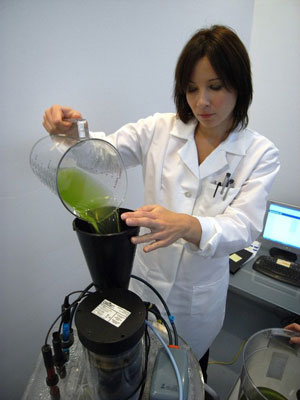Biochemist
Tasks & duties

Biochemists may do some or all of the following:
-
study the chemical make up of living things including genes, proteins and molecules
-
study chemical processes such as digestion and growth
-
study the effects of foreign bodies, such as diseases or vaccines, on living things
-
develop and test new products such as medicines or ingredients
-
write or supervise the preparation of scientific reports and papers for journals based on observations and experiments
-
manage laboratory teams and be responsible for quality assurance
-
work out budget and production costs, and prepare grant applications
-
collaborate with industry partners to pursue business development opportunities
-
lecture and supervise research students
Skills & knowledge

Biochemists need to have:
-
knowledge of cells and organs, and the role of genes and proteins in living things
-
an understanding of the effects of chemicals, poisons and molecules on living things
-
knowledge of statistics, chemistry and biology
-
knowledge of biological chemicals and their properties
-
research skills
-
skills in analysing and interpreting research results and other information
-
practical skills for performing experiments and operating scientific equipment
-
problem-solving skills
-
planning and organisational skills
-
communication skills
-
writing skills, for writing reports and for publications
-
maths and computer skills
-
expertise in writing grant proposals and funding applications
-
business development skills
-
management and leadership skills at the senior level
Entry requirements
To become a biochemist you need to have a Bachelor of Science, a Bachelor of Science and Technology, or a Bachelor of Technology majoring in biochemistry. Postgraduate qualifications, such as a Master's degree or Doctorate, are recommended for those wanting to enter research-based positions.
Secondary education
A tertiary entrance qualification is required to enter further training. Bursary or NCEA equivalent maths, chemistry, physics and biology are preferred.
Training on the job
Although many skills are learned at university, further laboratory and experimental skills are gained on the job.
Biochemists may also attend domestic and international conferences and seminars, as well as participate in fieldwork.
Useful experience
Useful experience for biochemists includes:
-
work with medicines or chemicals
-
laboratory work
-
experience writing reports
-
work as a science technician or medical laboratory technician
Related courses
Biochemistry and Cell Biology
Botany
Human Biology
Laboratory Technology
For more information, please refer to Career Services.
Document Actions
